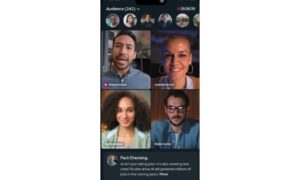If you’re job hunting in 2025, here’s the truth: AI is not just helping companies hire faster—it’s changing the entire hiring game. From screening resumes in seconds to running automated assessments and even generating personalized interview questions, AI is the silent gatekeeper behind many of today’s job offers.
And if you’re not using AI on your side? You’re probably already falling behind.
This post breaks down how AI is transforming the hiring process—and why you, the candidate, should start using AI interview copilots, AI interview helpers, and AI interview support tools to level the playing field.
How Employers Are Using AI in Hiring
You’ve probably heard the term “ATS” (Applicant Tracking System). In 2025, that’s just scratching the surface.
Here’s how AI is being used on the employer side:
- Resume Screening: AI tools can scan, score, and shortlist resumes based on job descriptions in seconds.
- Pre-Screening Chatbots: Many companies use AI chatbots to ask screening questions before a recruiter ever steps in.
- Video Interview Analysis: Some companies now use AI to analyze facial expressions, tone, and word choice in recorded interviews.
- Skill Assessments: AI can generate role-specific tests and even grade code or case study submissions.
This automation helps recruiters move faster—but it also means candidates are being judged before a human even sees them.
What This Means for Job Seekers
It means traditional prep methods—just memorizing STAR answers or writing one resume for every role—aren’t enough anymore.
To stay competitive, you need to:
- Optimize your resume for AI
- Practice interviews in realistic, AI-simulated environments
- Prepare for different interview formats (technical, behavioral, live)
- Learn how to use AI as a copilot, not a crutch
That’s where AI-powered job tools come in.
4 Reasons You Should Use AI in Your Job Search
1. AI for Resume Generation
Let’s face it—writing resumes is hard. Most people undersell themselves or don’t tailor it to each job.
AI resume builders now let you:
- Upload your experience and auto-generate bullet points
- Optimize content for ATS keyword matching
- Tailor your resume to a specific job description in seconds
- Format everything into a clean, modern layout
Some tools even let you rewrite your resume in different tones (corporate, startup, academic) depending on the audience.
TL;DR: Your resume is your first impression—and an AI can make it sharper.
2. AI-Powered Mock Interviews
Practicing interview questions in your head isn’t enough.
With an AI interview copilot, you can:
- Simulate real interviews for your target role or industry
- Get behavioral and technical questions tailored to your resume
- Receive feedback on structure, depth, and delivery
The best AI interview helpers let you customize responses, upload context files, and analyze performance across multiple sessions.
Mock interviews powered by AI are also perfect for:
- Career switchers who want to refine their story
- Non-native speakers looking to boost fluency
- Anyone who wants to build muscle memory in a low-stakes setting
3. Interview Prep with AI Question Banks & Reports
Many top candidates build their own question banks. But AI can generate one for you—based on your resume, the company, and the job description.
Advanced platforms like Verve AI go a step further:
- Let you create and share question banks with peers
- Turn LinkedIn job posts into interview question sets
- Provide downloadable AI-generated interview reports breaking down tone, pacing, content quality, and delivery
You don’t need a career coach when you’ve got that level of insight.
4. Real-Time Live Interview Support
Imagine you’re in an interview and freeze on a question.
AI interview support tools like Verve AI offer Picture-in-Picture mode that lets you:
- View your interviewer
- Access pinned notes (cheatsheets)
- Get smart suggestions in real-time
It’s discreet and game-changing, especially for high-pressure interviews.
Whether you’re preparing for FAANG, startups, or remote roles—real-time AI support is like having a whispering coach beside you.
What to Look For in AI Interview Tools
Not all platforms are equal. Here’s what I recommend looking for:
| Feature | Why It Matters |
| Resume tools | Helps you get past ATS and tailor to roles |
| Mock interviews | Builds fluency and confidence under pressure |
| Question banks | Generates role-specific questions |
| Customization | Lets you upload your own prep material |
| Real-time support | A bonus for live interviews or last-minute prep |
| Reports & history | Tracks growth and performance over time |
Platforms like Verve AI check all of these boxes, which is why it’s become a top choice for thousands of job seekers.
Will Using AI Hurt My Chances?
This is a fair concern. But the truth is: companies are already using AI. So you’re not cheating—you’re simply matching the playing field.
AI tools don’t give you canned answers (unless you want them). They give you structure, data, and feedback—so when you speak, it’s still you.
In fact, recruiters are more likely to be impressed when you come across as confident, prepared, and clear—exactly what AI tools help you become.
Final Thoughts: Adapt or Miss Out
AI isn’t coming for your job—it’s reshaping how jobs are won.
If you’re serious about landing your next role, using tools like an AI interview copilot, AI interview helper, or AI interview support system isn’t just smart—it’s essential.
Whether it’s helping you prep better, reduce stress, or give you an edge in competitive interviews, the right AI tools can mean the difference between almost and offer. So stop prepping like it’s 2015. Train with AI. Interview with confidence. Land the role.



































